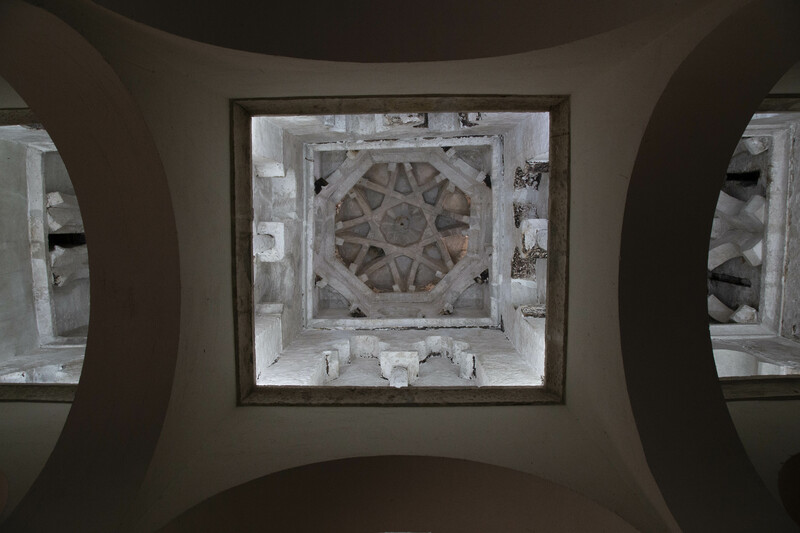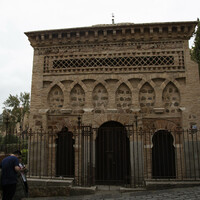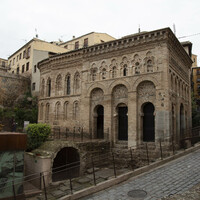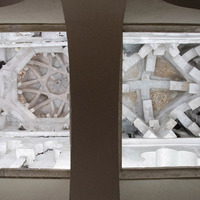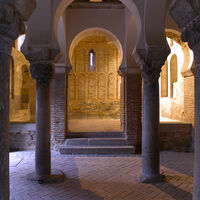Mosque of Bab al-Mardum
Date:
999–1000 (mosque), with an apse added in the twelfth century
Location or Findspot (Modern-Day Country):
Spain
Description:
According to its facade inscription, the small Mosque of Bab al-Mardum (approximately 8 × 8 m) was built in 999–1000. Both the inscription and the exterior decoration, including the intersecting blind horseshoe arches, are rendered in brick patterns. The inscription declares that Ahmad ibn Hadidi paid to have the mosque erected and also names Musa ibn 'Ali and Sa'ada as the builders. The nine-bay mosque with a raised central dome has different rib vaulting for each of the nine domes. The four columns within the square plan are capped with spoliated Visigothic capitals from the seventh century.
Alfonso VI of León (r. 1072–1109) captured Toledo in 1085, after which the mosque became the church of Cristo de la Luz. The twelfth-century semi-circular apse added to its east side destroyed the original qibla wall and mihrab.
Alfonso VI of León (r. 1072–1109) captured Toledo in 1085, after which the mosque became the church of Cristo de la Luz. The twelfth-century semi-circular apse added to its east side destroyed the original qibla wall and mihrab.
Relevant Textbook Chapter(s):
6
Repository and Online Resources:
• Take an interactive tour on the website of Yale's Center for the Study of Material and Visual Cultures of Religion.
Image Credits:
Linda Safran, Wikimedia Commons
